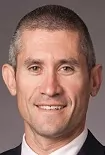Momentum seems to be building for unconventional gas development in NSW and Victoria with the Federal Industry Minister announcing an urgent CSG summit and the Abbott Government's promise to streamline project approvals.
Now the sector must move beyond focusing solely on lobbying government and reach out to communities that remain seriously concerned about unconventional gas development.
Successful resource development requires more than formal government approval – projects also need broad acceptance from the community. This is the concept of a "social licence to operate".
To obtain its social licence the unconventional gas industry must acknowledge the high level of anxiety around gas extraction and explain what is being done (in terms of environmental management plans, and advancement in extraction technology) to allay fears about the environmental and public health impacts of its operations.
What is needed are community engagement strategies across NSW and Victoria that connect unconventional gas developers with community stakeholders and get them talking. Done well, these strategies will not only strengthen the industry's case to government but also bolster its "social licence to operate" if and when restrictions are lifted. Community acceptance inevitably reduces the risk of costly project delays.
For an example of what can happen when there is a weak social licence to operate, NSW and Victorian unconventional gas companies need look no further than north of the NSW border.
In Queensland, a mismatch between the intensity of CSG development and the level of public education and consultation resulted in strong community backlash.
Misinformation about the impact of CSG operations on local communities has caused entrenched community distrust of the industry.
Community concerns have ranged from the use of chemicals and the level of environmental safeguards to the effect of CSG operations on groundwater, agricultural land and biodiversity. The community's opposition to CSG projects in Queensland has been expressed through organised resistance, political lobbying, media reports and direct action. The CSG industry has had to work hard to overcome this distrust.
To avoid a similar fate, gas players in NSW and Victoria must work hard to secure their social licence for large-scale unconventional gas development. This means:
- providing reasonable assurance that gas extraction will not cause long term environmental harm;
- communicating authentically such that local communities will be receptive to the message that gas players can operate without harming the environment;
- assuring communities that any social or economic impacts from projects will be recognised and quickly addressed; and
- demonstrating the net benefits that will accrue to people living in and near areas where gas is to be extracted beyond just an absence of environmental harm1.
Industry should now focus on developing links with the community so that it is well-placed to proceed at the time restrictions are lifted.
If unconventional gas companies in the NSW and Victoria fail to bring their stakeholders along with them for the journey, they may find themselves similarly exposed as their Queensland cousins to project delays and cost blowouts.
Footnote
1Australian Council of Learned Academies, Engineering Energy: Unconventional Gas Production – A study of shale gas in Australia – Final Report (2013) pp 156-157.
The content of this article is intended to provide a general guide to the subject matter. Specialist advice should be sought about your specific circumstances.
 |
|
| Most awarded firm and Australian deal of
the year Australasian Legal Business Awards |
Employer of Choice for
Women Equal Opportunity for Women in the Workplace (EOWA) |

